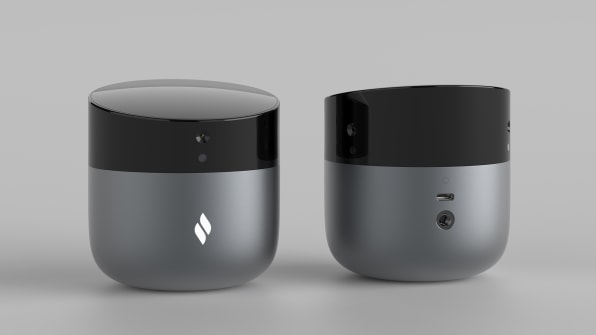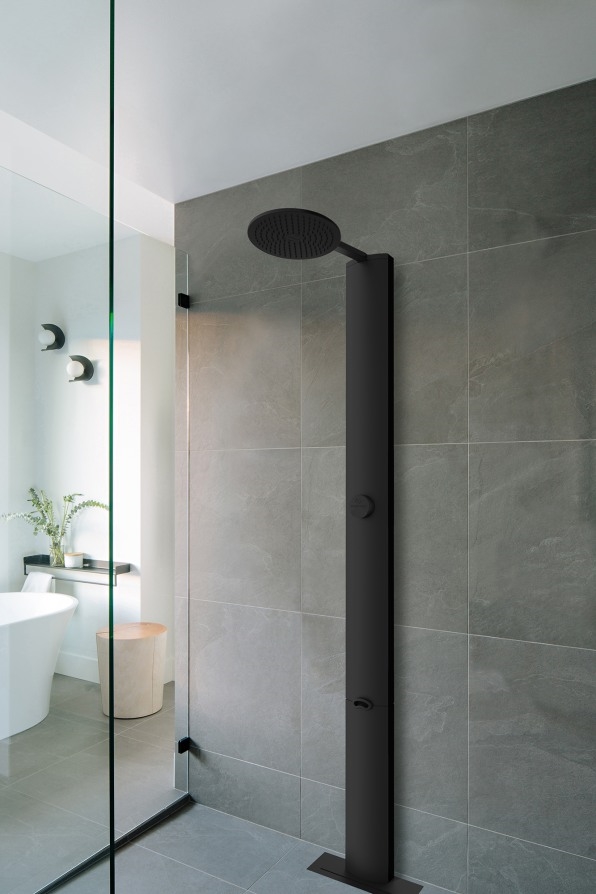It’s not possible to move to avoid climate change (sorry, Duluth and Buffalo). And as climate impacts keep getting harder to ignore—including stronger hurricanes, bigger wildfires, and whiplashing between droughts and floods in places like California—the world of climate-adaptation tech keeps growing. Some of it is designed for cities, from new seawalls that double as marine habitats to wastewater recycling infrastructure. Other solutions are designed for farmers, including crops bred to survive in extreme heat or little rain. Here are four examples of adaptation tech designed for use at home.

Torch Sensors
As wildfires grow larger and more intense in the Western U.S., some governments are beginning to use sensors to try to detect and stop fires before they grow out of control. A startup called Torch is now selling similar technology to people living in homes that are especially at risk because they’re on the edge of wild areas. The device, which costs $299, uses solar-powered sensors to monitor up to 10 acres of land for signs of fire, and then sends notifications through a mobile app. When a network of the devices is used throughout an area, alerts from one home can also be shared with others nearby.
Irrigreen
Some cities in California are paying homeowners to rip up their lawns to save water; Las Vegas, meanwhile, has banned aesthetic-only grass for more desert-friendly scapes. Arguably, as droughts become more common even in states like Massachusetts, the traditional lawn is an outdated concept. But for those that remain, a smarter sprinkler can cut water use in half. Irrigreen’s tech digitally maps out a lawn so it can “print” water precisely where it’s needed—like an inkjet printer—avoiding wasting water on sidewalks or overlapping in the middle of the lawn. It also uses live weather data to stop working when it rains. Irrigreen starts at $1,800 and goes up depending on the size of the lawn (there’s a free tool that homeowners can use to get an estimate).

Rainstick
When water flows into the Rainstick shower, designed by a Canadian startup of the same name, it doesn’t go down the drain: The technology captures the water, cleans it, and reuses it up to six times while you’re showering. A typical 10-minute shower might use 26 gallons of water, but the new version cuts that down to five gallons. The technology also saves 80% of the energy used to heat shower water. It’s also designed to be a better experience—doubling the water pressure of a conventional shower. The system, which comes preassembled along with a reservoir that has to be installed into a tile shower floor, is pricey, at more than $4,800.
Risk Factor
Built by the nonprofit First Street Foundation, a free online tool called Risk Factor helps potential homebuyers (or renters) evaluate the risk of living in a particular neighborhood. Type in any address in the U.S., and the tool shows the present and future risk of flooding, extreme heat, fires, and severe wind, based on the latest climate modeling. This is data that wasn’t easy to access in the past; now it’s integrated into sites like Realtor.com.
Multiple other new products are coming. Future windows could use new coatings to keep your home cooler on hot days with less air-conditioning; other smart windows might use sensors to monitor the temperature and automatically open at night to bring in cool air. Home batteries, paired with solar power, will continue to improve, offering backup power when the grid goes down in a storm (some electric vehicles are also now designed to send power back into homes). As the impacts of climate change get worse, the number of new products will likely only keep growing. Right now, most are aimed at richer consumers—so it will also be important to make sure that everyone has access.
(48)